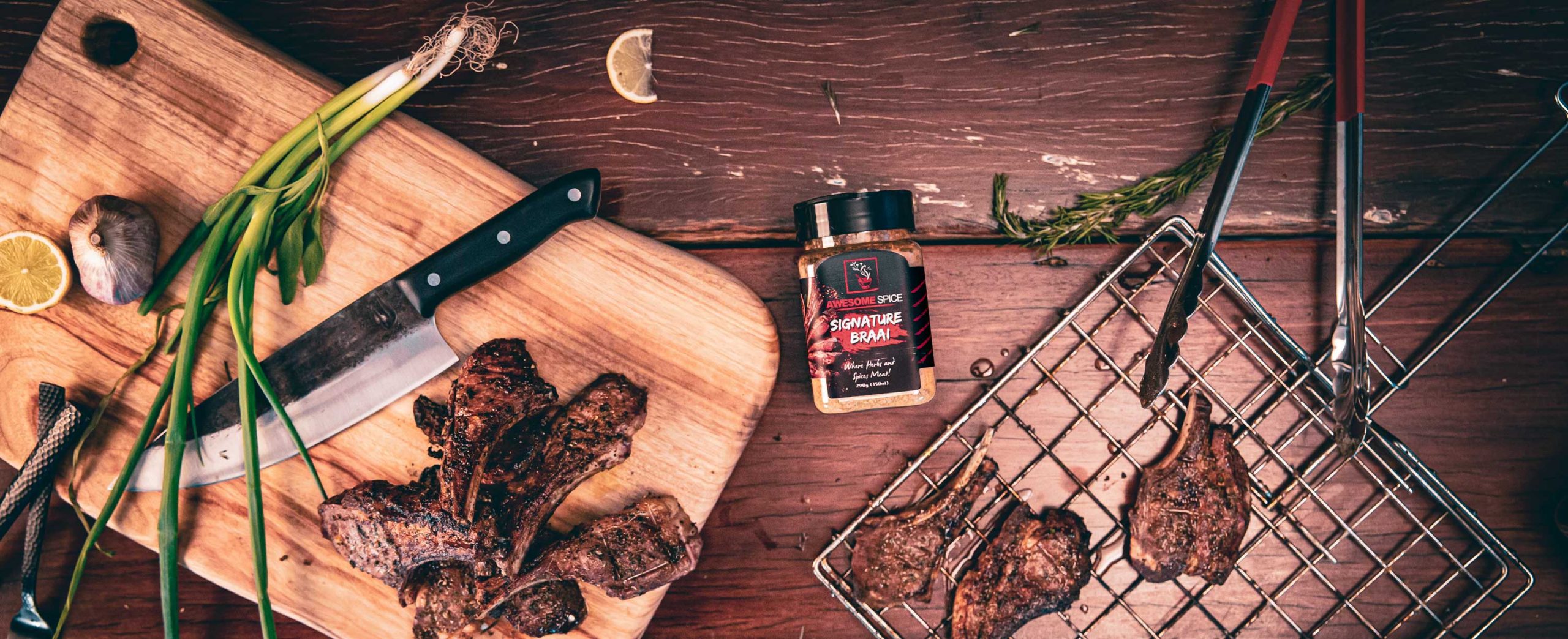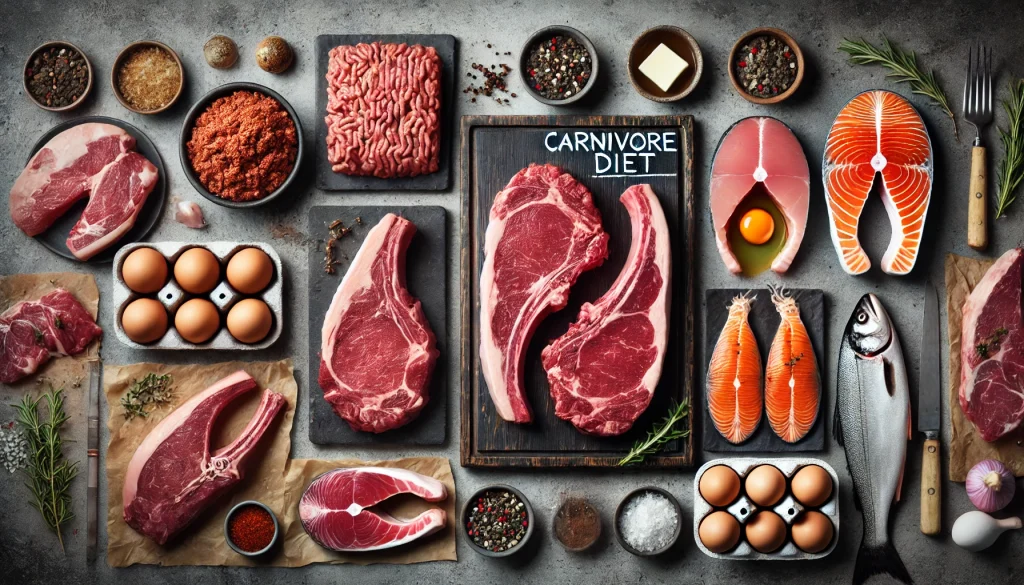(Disclaimer: I am not a medical or legal professional. The information shared in this article is based on personal research and experience. Always consult your healthcare provider, nutritionist, or legal advisor before making significant changes to your diet or lifestyle.)
Why I’m Talking About the Carnivore Diet
For me, it all comes down to weight loss. After struggling with stubborn weight for a while, I realised my diet was heavy in processed carbs and sugar—think bread, pasta, cereals, fizzy drinks, and sweet snacks. These are the kinds of foods that keep insulin levels high and encourage the body to store fat.
The carnivore diet offered a chance to reboot my eating habits and completely eliminate refined sugars, processed carbohydrates, and all the snacks I used to mindlessly reach for. Of course, it doesn’t hurt that I’m also a massive braai enthusiast. There’s something undeniably magical about sitting around a fire with friends and family, savouring every smoky bite.
Historically, humans relied heavily on animal-based foods for the bulk of our existence. It’s only in the last century that we’ve become incredibly reliant on sugar-laden, artificially processed products. By going carnivore, I hoped to tap into a more natural style of eating—at least temporarily—so I could reset my body, burn fat more effectively, and feel energised.
What Exactly Is the Carnivore Diet?
The carnivore diet is simple to define, yet it can be challenging to stick to:
- Allowed: Meat, fish, eggs, and animal fats.
- Not Allowed: Fruits, vegetables, grains, legumes, and especially refined sugars or sweeteners.
At first glance, it might sound extreme. Yet for many, it’s a strategic way to remove all processed carbs and sugary foods that can lead to weight gain, cravings, and metabolic issues.
The Science Behind It: Blood Sugar, Insulin, and Fat Storage
1. Blood Sugar and Insulin
When you eat carbohydrates—particularly sugary and refined ones—your blood sugar spikes. Your body responds by releasing insulin, which helps shuttle sugar into your cells. But elevated insulin levels also signal your body to store fat rather than burn it.
2. The Modern Sugar Overload
Between sweetened beverages, desserts, and even the hidden sugars in sauces and processed snacks, we’re often keeping our insulin levels raised all day. This makes it hard for the body to dip into fat stores for energy.
3. How Carnivore Helps
By removing sugars (and most other carbs), the carnivore diet naturally keeps insulin lower. This allows your body to access stored fat more readily. For those aiming to lose weight, it can be a straightforward approach: no calorie counting, just zeroing in on nutrient-dense, satiating foods and cutting out sugar.
My Personal Plan: Shedding Weight First, Then Reintroducing Foods
I’ll be honest: I’m not going to live on nothing but meat forever. My main priority right now is to shed excess weight. Once I reach my goal, I plan to gradually reintroduce other whole foods, including fibre-rich vegetables and maybe even the occasional braai broodjie—because, let’s face it, some pleasures are hard to give up permanently!
In the meantime, completely cutting sugar and processed carbs has significantly reduced my cravings. If, like me, your top priority is weight loss, a short-term or cyclical carnivore approach could be a game-changer—provided you have proper medical guidance and regular check-ins.
Addressing the Cholesterol Question
The moment I mention an all-meat diet, I often get asked: “Won’t that skyrocket your cholesterol?” It’s a valid concern, but modern thinking on cholesterol is more nuanced than just “high equals bad.” Here are some key points:
- Not Just About Total Cholesterol: Factors such as triglycerides, HDL (“good”) cholesterol, and inflammation markers all matter.
- Quality of Fat Is Key: Grass-fed beef, wild-caught fish, and free-range eggs often contain healthier fatty acid profiles.
- Individual Variation: Everyone’s body chemistry is different. Some people see their LDL (“bad” cholesterol) go up but also see improvements in other markers. That’s why keeping an eye on blood work and consulting professionals is crucial.
(Remember: This is for general information and not a replacement for professional healthcare advice.)
Why This Diet Feels Personal: My Braai Connection
One of the best parts of the carnivore diet, for me, is how naturally it fits with braaing:
- Simplicity: Toss a well-seasoned cut of meat on the fire, turn it a few times, and you’ve got a delicious meal.
- Flavour-Forward: With the right heat, the natural fats in meat develop an incredible crust and depth of flavour—no sugary marinades required.
- Variety in Cuts: From beef ribs to boerewors, lamb chops to chicken wings, there’s no shortage of options. Even fish can be grilled to perfection.
Potential Benefits: What I and Others Have Noticed
Though large-scale, long-term research on the carnivore diet is still emerging, many people share compelling stories. Common themes include:
- Fewer Cravings and Steady Energy: Cutting out sugar often leads to stable blood sugar levels and fewer midday crashes.
- Weight Loss (My Top Priority): Protein and fat are very satiating, which helps you dodge the sweet snacks you might normally crave.
- Reduced Inflammation: Some individuals report improvements in joint pain and digestion when they remove certain plant-based irritants and sugary foods.
- Mental Clarity: With your brain fuelled by ketones (from fat), many report feeling more focused and less prone to the ups and downs of sugar spikes.
Challenges: Let’s Be Honest
No diet is perfect or easy for everyone. Here are the main obstacles you might face on carnivore:
- Nutrient Gaps: Cutting out all fruits and vegetables might leave you short on vitamin C, magnesium, and fibre. Organ meats, bone broths, and possibly supplements can help.
- Social Situations: It can be awkward explaining you don’t eat salad or carbs—or saying “no” to a piece of cake at a birthday.
- Initial Adjustment: Many experience “keto flu” symptoms (fatigue, headaches) when drastically reducing carbs, especially sugar.
- Uncertain Long-Term Effects: There’s still a lack of in-depth, long-term studies on an all-meat approach, so staying informed and working with a professional is vital.
Is It Right for You?
Choosing to cut out sugar, refined carbs, and even healthy plant foods is a personal decision. Here are some tips if you’re curious:
- Consult a Professional: Always speak with a doctor or registered dietitian—especially if you have any underlying conditions.
- Slow Transition: If going fully carnivore overnight seems daunting, try simply removing sugar and processed snacks first, then progress further as you feel ready.
- Monitor Your Health: Blood tests and check-ups can help you keep track of your cholesterol, nutrient levels, and overall wellbeing.
A Typical Day on Carnivore
Wondering what meals look like when sugar and carbs are off the menu? Here’s an example:
- Breakfast: Eggs and crispy bacon—no toast, no jam!
- Lunch: Braaied chicken thighs, seasoned simply with salt and pepper.
- Dinner: A juicy rump steak, salted just before hitting the grill.
Aim for ethically sourced, grass-fed, or free-range products wherever possible. Not only is the flavour often better, but you may get a healthier nutrient profile, too.
Final Thoughts: Fire, Meat, and My Weight-Loss Journey
For me, the carnivore diet is a short-term strategy to turbocharge weight loss and break a lifelong dependence on sugar and processed foods. It’s allowed me to reconnect with the simple pleasure of a braai without the guilt of constant snacking or sugary treats. However, I know I’ll eventually reintegrate some veggies and occasional indulgences—like the irresistible braai broodjie—when I reach my goals.
Ultimately, we’re all individuals. Your choice of diet should match your health conditions, preferences, and lifestyle. Whether you opt for a full carnivore experience or simply reduce sugar and up your protein intake, the magic lies in listening to your body and working with professionals who can guide you.
Ready to light the braai and give it a shot? If so, keep an open mind, track how you feel, and savour every sizzle. Life’s too short not to enjoy the richness of good food—even if it’s part of a strategy to meet your fitness and health goals.



